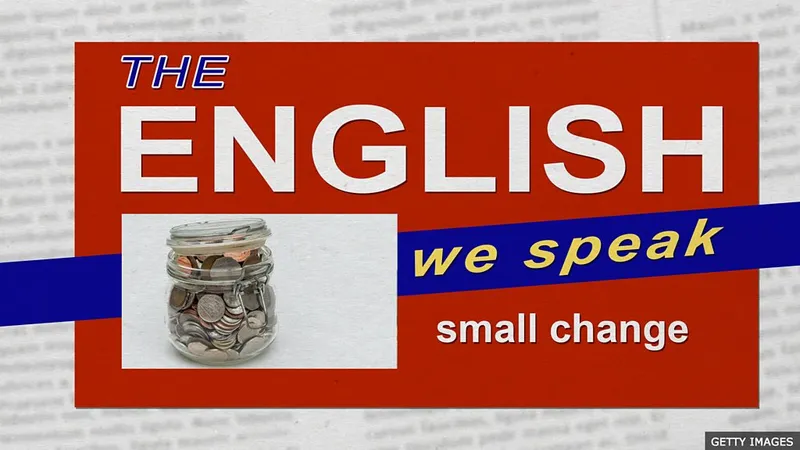Feifei Hello and welcome to The English We Speak. You are Neil…
Neil…and hello, you are Feifei.
Feifei Hello and welcome to The English We Speak. You are Neil…
Neil …and hello, you are Feifei.
Feifei Neil, a question – if you looked into my purse, what would you find?
Neil Not much! Probably lots of small coins that aren’t worth much.
Feifei Well I’m not rich, Neil – but yes, you would find small change. A collection of coins with little value.
Neil OK – is this the phrase for this programme?
Feifei Not exactly. The phrase is ‘small change’ but it’s not about money. Something that is insignificant or trivial, meaning not important, can also be described as ‘small change’.
Neil Like getting a seat on the train during the rush hour is ‘small change’ for me.
Feifei And getting chocolate sprinkles on top of my cappuccino is ‘small change’ for me.
Neil Really? That’s ‘big change’ for me! Let’s hear some examples that are far from being small change!
Examples I’ve only got a cold so my health problems are small change compared with your broken leg.
Eating out every night is small change to Molly – she can afford it with the huge salary she’s on.
Where I sit on the plane is small change to me, as long as we arrive on time.
Feifei This is The English We Speak from BBC Learning English and we’re talking about the phrase ‘small change’, which describes something insignificant or trivial, meaning not important.
Neil We can also describe someone as being ‘small change’ – so they are not important. Feifei, do you think I’m small change in this programme?
Feifei Of course not, Neil. You are very important to this programme – and besides, we couldn’t afford the other presenter!
Neil Ha ha. Very funny. So now we’ve explained ‘small change’ – can you lend me some?
Feifei You mean money? How much do you want?
Neil Ten pounds!
Feifei Neil, that’s NOT small change – and your request is not ‘small change’ either. The answer is ’no’!
Neil Well it was worth a try. See ya.
Feifei Bye.
